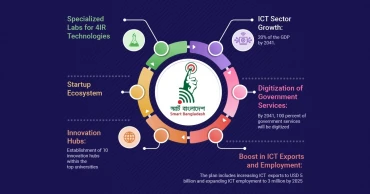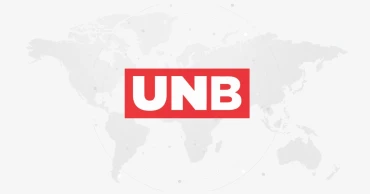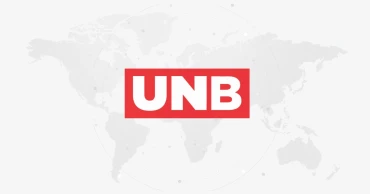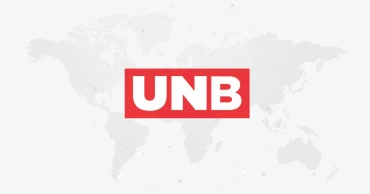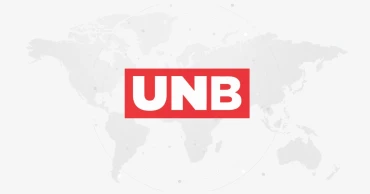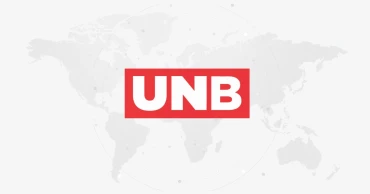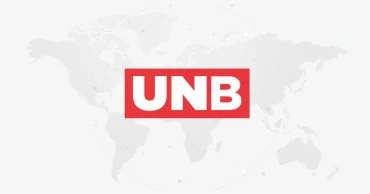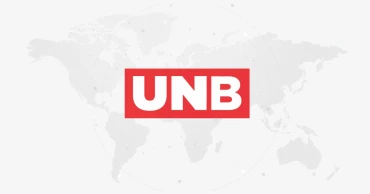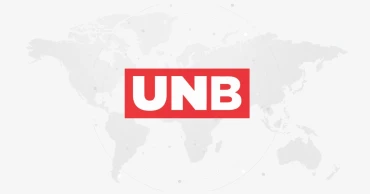smart Bangladesh
Govt moves toward 100% paperless services for Smart Bangladesh by 2041
The government has announced plans to make all its services completely paperless. This initiative is part of the broader “Smart Bangladesh by 2041” vision, aiming to leverage frontier technologies to transform governance.
According to an official document recently presented in the Parliament, the government aims to achieve 100 percent paperless, simplified, and personalized services. “All government services will be made 100 percent paperless, simplified, and personalized to enable frontier-technology-driven on-demand services,” the document states.
Key components of this transformation include making all services accessible and interoperable through the Smart Bangladesh Stack, a digital infrastructure framework. Additionally, data-driven, AI-based dashboards will be introduced for all ministries and departments to enhance decision-making processes.
By 2041, the government aims to significantly improve its standing in the UN e-Government Development Index, targeting a rank below 50. It also seeks to increase the tax-GDP ratio to at least 22 percent through technological advancements.
Finance Minister outlines vision for 'Smart Bangladesh' in National Budget for FY 2024-25
Another critical goal is to ensure universal and quality healthcare for all citizens, reinforcing the government's commitment to comprehensive social welfare.
One of the strategic goals for Smart Bangladesh is to establish the country as an innovative nation by 2041. To achieve this, the government is nurturing the next generation of freelancers, CMSME entrepreneurs, and startup founders.
The "One Family, One SEED" initiative is a key part of this strategy, aiming to provide Smart Employment and Entrepreneurship Development (SEED)-based facilities to at least one member of every family by 2041. This initiative is designed to cultivate a robust culture of entrepreneurship across the country.
Additionally, the government is running the "Her Power Project: Empowerment of Women with the Help of Technology," which provides IT training to 25,125 women across 130 upazilas in 44 districts. After completing the five-month training program, each participant receives a one-month mentorship and a laptop.
Building a “Smart Bangladesh”: Digital skills and IDs for all by 2041
The government is actively supporting young entrepreneurs through the Innovation Design and Entrepreneurship Academy (IDEA) project, offering training and financial assistance. As part of decentralizing the innovation ecosystem, the Smart Bangladesh Launchpad is being established as a venture studio to foster new business ventures and startups.
To further support startups, the government has established Startup Bangladesh Limited Company, a venture capital firm that invests in startups at both the seed and growth stages and engages in policy formulation at the national level.
Under the Mission Government Brain (G-Brain), several AI-powered initiatives are being developed, including Personalized Learning InvestorGPT, LawGPT, HealthGPT, and ClimateGPT. These initiatives aim to integrate artificial intelligence into various sectors to enhance efficiency and service delivery.
To facilitate the transition to smart governance, several initiatives have been launched. These include the Government Email Policy 2018 and the integration of 18,434 government offices, including 47 ministries/departments and 64 District Commissioners' offices, into a unified network.
The Bangladesh Computer Council (BCC) has also taken steps to implement e-signature technology without the need for dongles, with 273 officers currently using e-signatures. Additionally, the development of the Digital Municipality Service System (DMSS) is underway, providing e-services in nine municipalities and one city corporation with support from KOICA.
Empowering Change: Policy Dialogue on disability inclusion in SMART Bangladesh held in city
The 'National Municipal Digital Service' project aims to expand these services to 329 municipalities, offering 11 e-services. An ERP system with nine modules is being developed to make government offices paperless, with five modules already in use in the ICT and planning departments.
To bridge the gap between the government and the public, the 'Janatar Sarkar' citizen interactive web portal has been launched. This portal currently connects 11 ministries/departments, facilitating transparent and interactive communication between citizens and the government.
1 year ago
'Smart Bangladesh' by 2041: Government undertakes 8 strategic initiatives
The government of Bangladesh has undertaken eight strategic initiatives aimed at transforming the nation into a cost-effective, sustainable, innovative, intelligent, and knowledge-based 'Smart Bangladesh' by 2041.
These initiatives are designed to enhance the ICT sector's contribution to the GDP, expand digital services, and foster innovation across various domains.
Key Initiatives and Targets
ICT Sector Growth: The government aims for the ICT sector to contribute 20 percent to the GDP by 2041. This ambitious target is part of a broader strategy to diversify the nation's economic foundations.
Digitization of Government Services: By 2041, 100 percent of government services will be digitized, making them more accessible to the populace. This effort seeks to streamline processes and enhance the efficiency of public service delivery.
Boost in ICT Exports and Employment: The plan includes increasing ICT exports to USD 5 billion and expanding ICT employment to 3 million by 2025. Additionally, professional mentorship will be provided to 1,000 Bangladeshi startups by 2025 to nurture emerging entrepreneurs.
Innovation Hubs: Establishment of 10 innovation hubs within the top universities aims to stimulate creativity and technological advancement.
Startup Ecosystem: The goal to build at least 5 unicorns—startups valued at over USD 1 billion—reflects the government's commitment to fostering a robust startup ecosystem.
Specialized Labs for 4IR Technologies: Universities will host specialized labs focusing on cutting-edge technologies such as Robotics, AI, IoT, Big Data, Blockchain, and AR/VR, preparing students for future job markets.
Smart Digital Leadership Academy and 4IR Centre: These institutions will play pivotal roles in cultivating leadership and technical skills necessary for the Fourth Industrial Revolution.
Read more: Govt to include Smart Bangladesh in mid-term dev plan: Official Document
Current Progress and Future Plans
With over two-thirds of Bangladesh's population in the workforce, skill development and employment generation, particularly in the ICT sector, are high priorities. The government is actively transforming its large workforce to meet future market demands, as evidenced by the slight decrease in unemployment from 4.2 percent in FY 2016-17 to 3.6 percent in 2022, according to the Labor Force Survey 2022.
Prime Minister Sheikh Hasina recently highlighted that the unemployment rate is at three percent. Efforts to decrease this further include the Skills for Employment Improvement Program, implemented by the Finance Division, under which over 600,000 individuals have been trained.
Furthermore, the successful implementation of various initiatives has already facilitated employment for about 2 million people in fields ranging from IT freelancing to fintech and e-commerce, according to the official document ‘Medium Term Macroeconomic Policy Statement (2023-24 to 2025-26)’. The Bangladesh Hi-tech Park Authority is also working to convert over 60,000 youths into IT professionals by 2025, with 37,800 already having completed training programs, the document added.
Read more: Join hands in building ‘Smart Bangladesh’ under PM Sheikh Hasina's leadership: Envoy
Looking Ahead
The ICT Division has formulated the "Smart Bangladesh: ICT 2041 Master Plan" centered around four pillars: Smart Citizen, Smart Government, Smart Economy, and Smart Society. These pillars are expected to guide Bangladesh to the next stage of development, leveraging the potential of the 4IR to achieve a smarter and more sustainable future.
The initiatives reflect a comprehensive strategy by the Bangladesh government to harness the power of digital technology and innovation, steering the country toward significant economic transformation and enhanced global competitiveness by 2041.
Read more: Palak delivers speech on Smart Bangladesh in Singapore
1 year ago
'Smart' service points to be set up in 500 post offices across country: Palak
State Minister for Posts, Telecommunications and Information Technology Zunaid Ahmed Palak has announced 'Smart' service points will be set up in 500 post offices across the country.
He made the remarks while talking to reporters after a meeting with ambassador of the European Union (EU) to Bangladesh Charles Whiteley at the Secretariat on Tuesday.
“We have 500 post offices in the district and upazila headquarters of the country, which are in very excellent positions. We will set up smart points there alongside the government's post office services. We want to make smart service points there as public and private service providers. This service will be provided at 500 points. Which is a project of only Tk 49 crore,” said the state minister.
Complications with birth registration servers have been going on for a long time. Asked whether a solution is coming to overcome this problem, he said, "We have given all the proposals and suggestions in this regard. Now that the new government has been formed, we will sit with Local Government Minister Tazul Islam. We will follow up on our suggestions and suggestions and try again.”
“One is to provide quick service and the other is to ensure the security of information. Both were interrupted. We will discuss the matter soon," he added.
Asked when the problem will be resolved, he said, "I will tell you in seven days."
Regarding the meeting with the EU representative, the state minister started off by saying the European Union has stood by the government in this sector with all-out support, including technology and knowledge transfer.
"It still is," he insisted, adding: “In the new vision of the new government, we are working in a new way. We will get financial assistance from the European Union to establish a Smart government to implement Prime Minister Sheikh Hasina's Vision 2041 of Smart Bangladesh. They will invest here, they will also support their technology and knowledge.”
2 years ago
E-commerce business must be sustained to build Smart Bangladesh: DNCRP DG
E-commerce business must be sustained to build Smart Bangladesh, said AHM Safikuzzaman, director general of the Directorate of National Consumer Rights Protection.
Speaking as the chief guest at a discussion titled "Consumer Rights in E-Commerce and E-Service Sector: Our Action“, Safikuzzaman highlighted the pivotal role of E-Commerce in the national economic landscape.
Bangladesh Mobile Phone Consumers Association organised the event at Nasrul Hamid Auditorium of Dhaka Reporters Unity on Tuesday.
Shoeb Chy made Chairman of FBCCI standing committee on press, media
"Our next business is e-commerce business. „This business must be retained.“ He addressed concerns about customer funds held by e-commerce companies, stating, "To bring back the money of thousands of customers, the companies have to stay in business.“ He explained a measure called VVIT (Verified Vendor Identification and Transaction) aimed at preventing fraud in the sector. Under VVIT, every E-Commerce-Merchant must be registered and supervised by the E-Commerce Association of Bangladesh (E-CAB).
Safikuzzaman revealed that State Minister for Posts, Telecommunications, and Information Technology, Junaid Ahmed Palak, expressed support for these initiatives. "All traders from ECAB will be brought under VVIT, ensuring that registered companies can be tracked if they engage in fraudulent activities."
BGMEA chief seeks collective efforts for community development
Commenting on Consumer Complaint Management, Safikuzzaman outlined two Phases of Consumer Complaint Management (CCMA). The first Phase, applicable to all establishments except e-commerce, is set to roll out nationwide before the next Consumer Day. The second phase involves consumer complaints initially submitted to e-commerce companies. If unresolved, customers can approach the Consumer Rights Office, which will mediate and settle disputes.
Addressing recent media coverage related to the managing director of Evaly, Safikuzzaman criticized what he referred to as "yellow journalism.“ He warned that such reporting could jeopardise the dream of a thriving e-commerce sector in the country.
Islami Bank inaugurates 12 sub-branches
Rassel, the managing director of Evaly, reassured, "Our affected customers will get their money back as soon as Evaly gets the business opportunity."
Gazi Golam Tausif, Director of the Bangladesh Competition Commission, underscored the significance of the e-commerce sector in the government's goal to build a smart Bangladesh.
The meeting, presided over by Bangladesh Mobile Consumer Association President Mohiuddin Ahmed and moderated by Advocate Abubakar Siddiqui, featured discussions with key industry stakeholders, including E-CAB Secretary General Abdul Waheed Tamal, E-Courier CEO Biplab Ghosh Rahul, and others.
2 years ago
Eradicating arson terrorism, ushering in the era of Smart Bangladesh new govt’s priorities: Info Minister
Information and Broadcasting Minister Dr. Hasan Mahmud today (January 10, 2024) outlined the primary challenges for Bangladesh’s new government. Key among these challenges are the eradication of arson terrorism and the advancement of the nation into a technologically sophisticated era.
Speaking after paying homage to Bangabandhu Sheikh Mujibur Rahman on his historic Homecoming Day, Dr. Mahmud addressed the objectives of the new administration. “With the formation of the new government, our principal focus will be to root out arson terrorism and pave the way for a Smart Bangladesh,” he stated.
Read more: 'Citizens rejected the call to boycott elections': Hasan Mahmud
The information minister emphasized the pivotal role of Bangabandhu Sheikh Mujibur Rahman. “Our victory in the Liberation War on December 16 marked a significant milestone, but our independence was incomplete until January 10, 1972. This was the day when Bangabandhu, the Father of the Nation, returned to an independent Bangladesh,” he remarked.
Dr. Mahmud paid deep respect to Bangabandhu, Bangamata Sheikh Fazilatunnesa Mujib, the martyrs, and the four national leaders, acknowledging their sacrifices in shaping the nation.
The minister also commented on the recent national election, noting the positive feedback from international observers. “Observers from the United States, the European Union, and various countries noted the smooth and fair conduct of the elections, marking a notable improvement from previous years,” he said. He also highlighted the international support received, with official statements from the European Union, the United States, and the United Kingdom expressing their willingness to work with the Bangladesh government. He mentioned congratulations extended by over 31 countries, including Japan, and personal well-wishes from leaders like Indian Prime Minister Narendra Modi.
Read more: Sheikh Hasina re-elected Awami League Parliamentary Party leader for 4th time in a row
2 years ago
‘Want the entire world to observe our polls and learn from us’: Momen
Foreign Minister AK Abdul Momen has said they want to see a "free, fair, non-violent and transparent" election and achieve the goal to build a "Smart Bangladesh" ensuring peace and stability.
"We want all from the entire world to come and see, and learn from us," he said while talking to journalists after his meeting with a team of European Union (EU) experts at his residence on Wednesday (December 27, 2023) night.
Momen, however, said the visiting EU team only listened to him as they wanted to know a few things, but did not make any comment on the election. “They didn't even want to talk to the media.”
He said Bangladesh is a democratic country, and there is a very strong Election Commission in place that is taking all necessary steps to hold a fair election.
Asked about BNP's allegations to the EU team in a separate meeting, the foreign minister said the government has not arrested anyone on political grounds but arrested those who were involved in “terrorist activities.”
Also read: Don’t want to see any proxy war in region; want to show world fair polls: FM
He referred to CCTV footage and statements made by some BNP supporters, mentioning who instructed them to carry out arson attacks and vandalism.
"Not a single person has been arrested for political reasons . Only criminals have been arrested. We cannot tolerate terrorism," Momen said.
The foreign minister said some big countries want Bangladesh to purchase things from them, but Bangladesh does not do so at the cost of sacrificing public interests.
"That's why they are unhappy to some extent. But we follow our principles. If you stand by your principles, your dignity will be enhanced," Momen said.
Also read: EU polls mission holds meeting with FM Momen, BNP leaders in Sylhet
He also talked about Prime Minister Sheikh Hasina’s desire to build a “Sonar Bangla” and a “Smart Bangladesh.”
"We want peace. We want stability. We don't want terrorism. We want freedom of media and freedom of speech. We want the continuation of democracy. We want more job opportunities," Momen told the reporters, referring to Awami League's election manifesto.
Before going to Sylhet, Momen also talked to reporters in Dhaka on Wednesday afternoon.
Highlighting the importance of peace and stability for greater development, he said they do not want to see any “proxy war” in the region.
“Our main goal is that we do not want to see any proxy war here. Problems remain there where we see proxy war despite having resources. Europe has fallen into proxy war and is facing challenges,” he told reporters, noting that there might be efforts to make the countries in the region weaker.
Momen said Bangladesh has taken a leadership role in the region and other countries acknowledge this.
Read more Cumilla presiding officer show-caused for campaigning in favour of AL candidate Mustafa Kamal
2 years ago
AL Pledges to Expand Modern Urban Facilities to Every Village in Smart Bangladesh
Ahead of the upcoming 12th National Parliamentary Election, the ruling Awami League has announced its election manifesto, committing to extend modern urban amenities to every village.
The manifesto, with the slogan “Smart Bangladesh: Visible Development, Increased Employment,” was announced by Awami League President and Prime Minister Sheikh Hasina today (December 27, 2023) at the Pan Pacific Hotel Sonargaon in Dhaka.
The manifesto promises to enhance the quality of life in villages by providing improved roadways, communication, clean drinking water, modern healthcare and medical treatment, quality education, advanced sanitation and waste management, increased electricity and fuel supply, computer and high-speed internet facilities, and expanded markets. These initiatives aim to bring all the comforts of modern cities to every village.
In Smart Bangladesh Awami League seeks more safeguards for minorities, end of intolerance
To ensure a reliable fuel supply, the party plans to continue encouraging and supporting the installation of biogas plants and solar panels on a group basis. The establishment of agricultural machinery service centers and workshops in villages will expand rural mechanization services, including machinery repair. This initiative will also provide training for rural youth and agricultural entrepreneurs, promoting productive employment.
The manifesto includes plans for private sector investment and loan support for small and marginal entrepreneurs manufacturing and marketing light machinery. In line with the economic development of villages, cultural, sports, and entertainment programs will be expanded. This approach is expected to reduce the urban migration trend among rural youth by creating self-employment opportunities within villages. The government will fully support young people's involvement in agriculture, industry, and business.
AL Manifesto on Significant Steps to Foster Women Entrepreneurs
Awami League says that during its previous tenure, roads in every upazila were improved and expanded, connecting each village to upazila headquarters and linking upazilas to district headquarters and national highways. Every village has been ensured electricity supply. Drinking water and sanitation facilities have been enhanced and will be further improved. The government has taken over the expenses of primary and secondary schools, and financial support is being provided for teachers' salaries in private schools. Hospitals with 50 beds in upazilas are being upgraded to 100-bed facilities. Community clinics are bringing healthcare services to the doorstep of rural residents. Every union now has computer and internet service centers, providing employment opportunities to rural youth and facilitating communication nationally and internationally.
Awami League’s Manifesto: Mega Projects for Accelerating Economic Momentum
The expansion of communication, electricity, and internet services has accelerated rural production and market systems. Agricultural inputs have become more accessible, and the market for agricultural products has expanded. The extension of agricultural technology and the development of cottage and small industries are being expedited. Activities in both agricultural and non-agricultural sectors have multiplied significantly in rural areas.
2 years ago
In Smart Bangladesh Awami League pledges more safeguards for minorities, end of intolerance
With the determination to make the nation smart, defined as free from dogmatism and anchored in harmony, Awami League has announced its manifesto for the upcoming 12th National Parliamentary Election.
The manifesto, with the slogan “Smart Bangladesh: Visible Development, Increased Employment,” was announced by Awami League President and Prime Minister Sheikh Hasina today (December 27, 2023) at the Pan Pacific Hotel Sonargaon in Dhaka.
The manifesto focuses on the plans and commitments for ethnic and religious minorities. It outlines the steps the party will take for the communities if it returns to power.
The manifesto not only addresses the next five years but also the vision of developing a prosperous Bangladesh by 2041. In this long-term vision, the lives, traditions, culture, history, and aspirations of ethnic and religious minorities are integrally linked with the development of Bangladesh. The manifesto outlines a clear path for these communities during this extended period, including specific steps to be taken.
The President of the Awami League stated that discriminatory behavior against ethnic and religious minority communities will be eliminated. Prioritized efforts will continue to improve their living standards.
Currently, Bangladesh is home to over 30 lakh people from approximately 45 ethnic minority groups. Their lives, traditions, culture, and history are deeply intertwined with Bangladesh. The Father of the Nation, Bangabandhu Sheikh Mujibur Rahman, recognized equal rights and dignity of all communities, including ethnic and religious minorities, in the Constitution of Bangladesh. In line with this, Awami League continues to eradicate discriminatory behavior against these communities and prioritizes various initiatives to protect their lives, properties, places of worship, autonomy, and improve their living standards.
Read: Bangladesh’s strong position in int’l arena due to AL’s successful foreign policy: PM
In Bangladesh, Muslims, Hindus, Buddhists, and others can freely practice their religions, as affirmed by the leader of the Awami League.
Development and Progress
Measures have been taken to protect the land, homes, places of worship and other assets of religious and ethnic minorities.
Various programs, including social safety schemes, are being implemented to integrate the people of ethnic minority communities into mainstream development.
Special provisions and opportunities continue for the education and employment of children of underprivileged ethnic minorities and tea garden workers.
Educational and health services for ethnic minorities have been expanded to remote areas, and other infrastructural facilities, including roads and electricity, have been improved.
The government encourages the preservation of the diverse customs and traditions of ethnic minority communities.
To ensure greater political representation and social inclusion, the government has taken positive steps to increase the participation of ethnic minorities in decision-making processes.
Various clauses of the Chittagong Hill Tracts Peace Accord have been delegated to the Regional Council and District Councils, allowing development activities to be planned and implemented, considering local, geographical, and socio-economic contexts.
Special measures have been taken for the development of tourism, food processing, small and medium industries, and traditional cottage industries in the three hill districts. High-value spice cultivation, coffee and cashew nut farming, cotton cultivation, and solar energy initiatives are being implemented for the public's benefit.
Grants for the development of temples, crematoriums, pagodas, and churches continue, along with ongoing programs for the overall welfare of Hindu, Buddhist, and Christian communities through respective religious welfare trusts.
Awami League’s Commitment
Article 23A of the Constitution stipulates that the state will adopt measures to preserve and develop the unique local culture and tradition of the ethnic sects and communities. Initiatives to uphold this constitutional provision will continue.
During the tenure of the Awami League government, the Vested Property Act was amended, and measures were taken to resolve issues related to vested properties. Obstacles in the implementation of the law will be removed.
A National Minority Commission will be formed, and a special protection law for minorities will be enacted to safeguard the interests of minority communities. Awami League will continue to take necessary steps to ensure the safety and livelihood of religious and ethnic minorities, and underprivileged communities.
Read: Rangpur abuzz with excitement in anticipation of PM's electioneering
During the BNP-Jamaat alliance government, religious and ethnic minorities faced brutal attacks and discrimination. Many from these communities were killed, numerous women were raped, and their homes, lands, and businesses were occupied and looted. Awami League will complete the judicial process for these inhumane incidents and prevent their recurrence.
Awami League will maintain its policy of ending terrorism, discriminatory behavior, and human rights violations against religious and ethnic minorities. It will ensure the protection of their lives, properties, dignity, and equal rights in all spheres of state and social life.
Priority will be given to the balanced development of underdeveloped areas, including slums, chars, haors, and coastal regions, and to improving the quality of life of their inhabitants.
Neglected Communities
A portion of Bangladesh's population consists of Dalits, Harijans, and Bede communities. These communities are neglected, isolated, and overlooked in society. Awami League is committed to implementing programs to improve their living standards and integrate them into the mainstream.
Social safety programs for the development of the living standards of the Bede and other underprivileged communities will continue. Vocational training will be provided to enhance their skills, enabling them to engage in income-generating activities and integrate into mainstream society. Cash assistance and housing programs for underprivileged communities will be expanded nationwide.
Hijra Community
The Hijra community forms a small part of Bangladesh’s total population. Throughout history, this community has been isolated and neglected. Awami League government has taken various programs to ensure the fundamental rights of the Hijra community and integrate them into mainstream society.
The manifesto states that Hijras will be included in mainstream society, and their fundamental rights will be protected. Social justice will be ensured, along with improvements in education, housing, living standards, and social security.
Awami League’s election manifesto also says that cash assistance and housing programs for the Hijra community will be expanded nationwide.
Read more: Avoid conflict, work peacefully for participation of voters in election: PM Hasina urges candidates
2 years ago
Awami League’s Manifesto: Mega Projects for Accelerating Economic Momentum
Awami League has pledged to undertake new projects to accelerate the pace of the country's economy.
The manifesto with the slogan ““Smart Bangladesh: Visible Development, Increased Employment” was announced by Awami League President and Prime Minister Sheikh Hasina today at the Pan Pacific Hotel Sonargaon in Dhaka ahead of the 12th National Parliamentary Election slated for January 7, 2024.
The manifesto of Awami League states that mega projects are crucial for achieving high growth rates. The biggest obstacles in the path of the country's development were the lack of necessary infrastructure in various economic sectors, including roads, electricity and energy, and ports. With this goal in mind, under the visionary leadership of Prime Minister Sheikh Hasina, the Awami League government has undertaken and implemented several major projects (mega projects) in three terms. It is hoped that these projects, including the Padma Bridge – a symbol of national pride and glory – will inject the expected momentum into development.
The manifesto mentions that during the tenure of the Awami League government, many significant projects have been initiated. On June 25, 2022, Prime Minister Sheikh Hasina inaugurated the Padma Multipurpose Bridge, the country's largest bridge, funded by own resources. The Padma Bridge has created a safe, reliable, sustainable, and integrated system for unhindered communication across the country. This bridge will be part of the Asian Highway, opening new horizons for communication among South Asian countries.
It is stated that the inauguration of the railway linked to the Padma Multipurpose Bridge on October 10, 2023, has brought many districts of the southern region under rail connectivity with Dhaka.
PM Hasina unveils AL election manifesto promising dev, peace, prosperity
The manifesto also says that the Dhaka Metro Rail is a step towards building a smart Bangladesh. It will not only free the citizens of Dhaka from unbearable traffic congestion but also reduce air and noise pollution in the capital. The ease of the transportation system will increase economic dynamism, and the metro rail will save working hours for people.
It is mentioned that the construction of a 3.32 km tunnel under the Karnaphuli River in Chattogram, connecting Patenga with Anwara, has transformed the Port City into a “One Way, Two Town” model.
The manifesto notes that the inauguration of the Third Terminal of Hazrat Shahjalal International Airport in Dhaka on October 7, 2023, has opened a new horizon in air communication.
On September 2, 2023, with the inauguration of the Kawla-Farmgate section of the Dhaka Elevated Expressway, Bangladesh entered the world of elevated expressways.
On November 11, 2023, the channel of the Matarbari deep-sea port and the foundation stone of the first terminal were inaugurated. Once operational, this port will allow both container and cargo ships to dock simultaneously.
Voter turnout will be satisfactory despite intimidation: Quader
The manifesto states that on November 11, 2023, the much-awaited 102 km railway line from Dohazari in Chattogram to Cox's Bazar was inaugurated. This railway line will connect Bangladesh with the Trans-Asian Railway corridor and transform Cox's Bazar into a smart city.
It was mentioned that on October 10, 2021, and October 18, 2022, the first and second units' nuclear reactor pressure vessels at the Rooppur Nuclear Power Plant were inaugurated, earning Bangladesh the honor of becoming the 33rd member of the nuclear club.
The manifesto notes that on September 6, 2022, Bangladesh Prime Minister Sheikh Hasina and Indian Prime Minister Narendra Modi jointly inaugurated the Rampal coal-based power plant, which has a production capacity of 1,320 megawatts.
In August 2018, Bangladesh began supplying gas to the national grid from the country's first LNG terminal, followed by the commencement of the second LNG terminal in April 2019. Each terminal at Maheshkhali's LNG floating storage has a daily regasification capacity of 50 crore cubic feet.
The manifesto states that Payra Seaport, the country's third port, has been established in Patuakhali. Due to infrastructural development, the first container ship anchored at the port on August 13, 2016.
The Awami League's manifesto promises that, considering financial management, some expensive projects have been suspended, which will be reconsidered and implemented as appropriate. The consideration and adoption of economically feasible new projects will continue.
Food for All: AL Manifesto Emphasizes Agricultural Development for a Hunger-Free Bangladesh
2 years ago
No one will lag behind in Smart Bangladesh: Palak
State Minister for ICT Zunaid Ahmed Palak on Sunday said no one will be left out under Smart Bangladesh.
“No one will be left behind, be it the students of madrassas or those living in remote mountains. Through the leadership of all, we will build a progressive and innovative smart Bangladesh,” he said.
The State Minister said this during a view-exchange meeting with the concerned stakeholders regarding the implementation of inclusive, knowledge-based, and innovative Smart Bangladesh.
The interaction was organized by Aspire to Innovate-a2i and the Information and Communication Technology Division at the ICT Tower in the capital on Sunday (November 19, 2023).
1 dead, 3 injured in steel mill fire at Dhaka's Kadamtoli area
Secretary of ICT Division, Shamsul Arefin, Project Director (Joint Secretary) of a2i, Md Mamunur Rashid Bhuiyan, Vice-Chancellor of Bangabandhu Sheikh Mujibur Rahman Digital University, Prof. Dr. Mohammad Mahfuzul Islam, as well as entrepreneurs, representatives of technology-based business organizations, teachers, freelancers, influencers, women, disabled, and media workers from the country, attended the programme.
At that time, they shared their suggestions, recommendations, and proposals for the implementation of Smart Bangladesh by 2041 in their respective fields.
In his speech, Palak said that when the dream of Digital Bangladesh was seen 14 years ago, everyone used to make fun of it, but today this dream has become a reality. “We are now a developing country. Under the leadership of Prime Minister Sheikh Hasina, we are dreaming of a new Bangladesh. By 2041, this country will be an inclusive, knowledge-based, and innovative Smart Bangladesh,” he added.
Ban e-cigarettes to protect new generation: e-CAB
Highlighting the four pillars of Smart Bangladesh - Smart Citizens, Smart Economy, Smart Government, and Smart Society, the state minister said the smart ID will be implemented with 20 percent digital skills, 60 percent smart devices, and 30 percent service adoption by 2025 to build smart citizens. Agrotech, Fintech, Healthtech, Smart Grid, and Edutech will be at the forefront of building a smart economy.
He also stressed the importance of building a smart humane world through the humane use of technology.
The stakeholders provided necessary suggestions, recommendations, and proposals for the implementation of Smart Bangladesh. They said that our country is technologically advancing. However, there are still many challenges, which we have to overcome to implement Smart Bangladesh. The payment gateway has now become a big challenge for freelancers in the field of international transactions. Due to this, payment is becoming a hindrance in many big jobs.
Woman hit by van succumbs to injuries at DMCH
Apart from creating a sector-based data-based digital system, it is also necessary to make it an interoperable system. This will create transparency and accountability in the inter-sector decision-making of the public and private sectors and create opportunities for timely decision-making in the creation of citizen-friendly services.
Youths need to get more involved in developing their technical skills, from artificial intelligence to all the new technology that exists out there. Only then the citizens of smart Bangladesh will not be a burden to the country and will be a demographic dividend for the country.
Among others, ISPAB president Emdadul Hoque, e-CAB general secretary Muhammad Abdul Wahed Tomal, BASIS director AKM Ahmedul Haque Babu, BIJF president Naznin Nahar, TMGB president Md. Kawsar Uddin along with the ICT Division, a2i, different educational institutions, business institutions, and media persons were present at the event.
2 years ago

